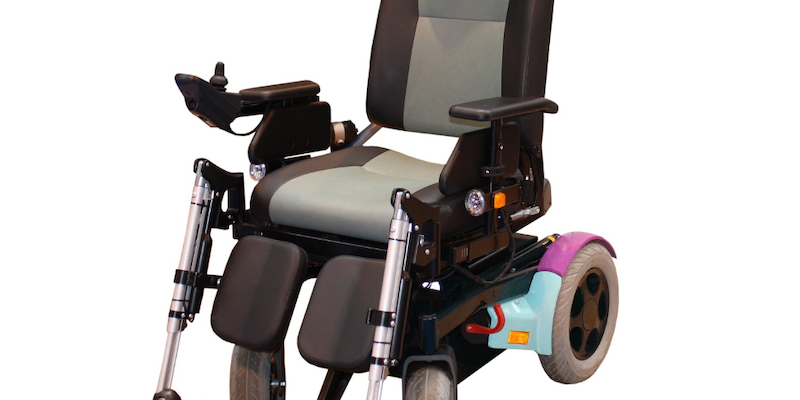Complex rehab technology, or CRT, consists of a wide range of adaptive equipment for people with certain disabilities. People who qualify for CRT equipment are those in need of something that is more tailored to their individual needs.
For example, a person with paraplegia can often get by with a manual wheelchair that requires the use of their arms. Other disabled individuals may not have the luxury of upper-body mobility. They instead require something motorized to get around Myrtle Beach.
Access to CRT like a power wheelchair is vital for certain people to function in their daily lives. Whether or not your insurance can cover the cost depends on your plan and if you have Medicare.
Here’s everything you need to know about complex rehab technology and how to get it.
Who Needs Complex Rehab Technology?
CRT benefits those with disorders or diseases that severely impair their movement. In some cases, they may also lack muscular support. Some of the ones that need complex rehab technology include cerebral palsy and brain or spinal cord injuries.
Custom equipment is also available for those who have difficulty walking and are at a higher risk of falling. This includes anyone who has an unstable heart rate or can only move in short bursts.
More often than not, people who qualify for rehabilitation equipment rely on others throughout the day. Getting rehab technology helps give them some independence back while making their caregiver’s job easier for both of them.
Types of Rehab Equipment
The types of CRT equipment available in Myrtle Beach depends on a patient’s specific injury or needs. For example, there are some types of rehab medical equipment that’ll help recover strength after an illness or injury.
Practice stairs help patients relearn how to walk up structures. Lifting weights helps build up upper body strength. Electrostimulation devices vibrate your muscles to encourage recovery and provide pain relief.
Complex rehab technology doesn’t necessarily have to provide exercise to aid in the recovery process, though.
The most common types of CRT equipment you’ll find are power wheelchair systems. There are also standing devices and gait trainers. Power wheelchairs may come with alternative seating positions that are highly configurable.
Complex power chair systems accommodate orthopedic issues and provide pressure management. They can also accommodate ventilators and have advanced electronic controls.
Meanwhile, standing devices and gait trainers can give a person more mobility and freedom.
Differences Between CRT and DME
It’s important not to confuse CRT and DME when purchasing medical supplies. One is made more as a standard, while the other should specifically fit a single person’s needs.
DME, or durable medical equipment, refers to most medical equipment that can be used at a hospital or in a care facility. That includes wheelchairs, hospital beds, canes, and ventilators. Durable medical equipment is made to be used with most patients and tends to be purchased in bulk.
Complex rehab technology often includes services along with products. While electric wheelchairs are available as both DME and CRT, the latter may have more advanced drive controls and rehab seating.
Despite their differences, durable medical equipment and complex rehab technology are both included in the same Medicare benefit category. Private insurance may classify them differently and cover varying amounts.
Benefits of Complex Rehabilitation Equipment
One of the biggest and most immediate benefits of CRT equipment is preventing pressure injuries from developing. A pressure injury results from staying reclined for too long. People who can’t shift their weight or reposition themselves can develop pressure sores or worse.
A wheelchair is mandatory for certain people to get around Myrtle Beach and maintain some kind of independence. However, sitting for too long can cause spinal issues to develop or worsen.
The appropriate complex rehabilitation equipment is necessary to prevent these issues from developing. After all, a person with a specific congenital disorder won’t sit the same way another person might sit. Their seat should be tailor-fit for comfort or to correct their posture.
Another benefit is that CRT and DME are both covered in Original Medicare. As long as your doctor and suppliers are enrolled, you should only pay 20% of the approved amount. In some cases, you may need to rent or buy the equipment.
When outfitted with a new powered wheelchair, make sure to get accustomed to using it. Test the safety features and adjust it for maximum comfort. Most importantly, take your time and reach out to a local support group if you want more in-person advice.
How to Get CRT Equipment
While getting a standard wheelchair can be as easy as having your doctor order it for you, getting complex rehabilitation technology isn’t as simple. You not only have to qualify for CRT, but you also need it custom-made for your body.
First of all, expect to work with your physician, occupational or physical therapist, and a CRT supplier. It’s a complicated process, and you’ll need approval and advice every step of the way.
In order to qualify, a PT or OT needs to identify a need for CRT over the alternatives. Next, a physician has to assess what specifically benefits from the equipment.
Your PT or OT determines your functional limitations and submits a letter to your physician for approval. This letter also goes to Medicare or whatever insurance agency you utilize.
Once you’re authorized, you’ll meet with a supplier who will bring trial equipment. The supplier will find you the right fit and should provide training if needed.
Gearing Up with CRT in Myrtle Beach
Every individual deserves a right to comfort and mobility, regardless of their disabilities. Complex rehab technology is specially molded to protect your spine and decrease the risk of pressure sores. More importantly, you can get back some level of independence if you get a power wheelchair.
Freedom Mobility Center can help you find the right durable medical equipment or complex rehab chair in the Myrtle Beach area. Contact us today to schedule an in-home assessment.

